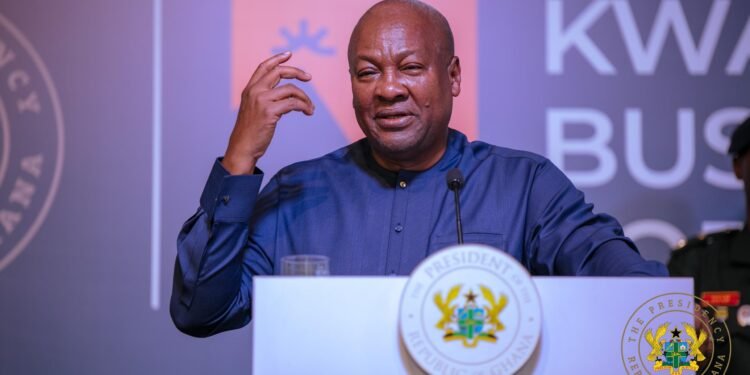The Government of Ghana has announced a decisive new phase in its ongoing battle against illegal mining, popularly known as galamsey, with a bold directive aimed at reclaiming polluted rivers across the country.
The announcement was delivered by Minister of Lands and Natural Resources, Hon. Emmanuel Armah Kofi Buah, following a major clampdown by the National Anti-Illegal Mining Operations Taskforce (NAIMOS) on galamsey activities along the Ankobra River in the Western Region.
Speaking at the site of the operation, Hon. Armah Buah declared that government was no longer prepared to watch vital water bodies deteriorate under the weight of unchecked illegal mining.
He emphasized that under Ghanaian law, no individual or group has the right to mine directly in any river body, and those flouting the law should prepare for stern consequences.
“The reason why we are here today is because we are moving to another major phase of our fight against the river mines. We all know that there is no law in Ghana that allows anybody to mine in any river body.
“Consistently, major rivers that are key to our survival are being destroyed. You already know the stories of Ghana Water Company plants being shut down because of these exercises.”
Minister of Lands and Natural Resources, Hon. Emmanuel Armah Kofi Buah
He announced that the government, under the leadership of President John Dramani Mahama, is adopting a new approach to protect and rehabilitate the nation’s rivers. Going forward, the security forces would take direct control of river bodies, ensuring they are shielded from galamsey operations.
“In the coming months, you will see a new shift in President Mahama’s focus. The direction is that we are going to take control of every river body directly.”
Minister of Lands and Natural Resources, Hon. Emmanuel Armah Kofi Buah
Resolve to Restore Rivers
The Minister issued a stern warning to illegal miners, stressing that the government’s resolve to restore rivers to their natural state was unwavering.
“We are sending a warning to anybody who has been really violating the laws and getting close and really destroying our water bodies. We are determined to turn them blue. This order has already been given. You stay out or you do so at your own peril”.
Minister of Lands and Natural Resources, Hon. Emmanuel Armah Kofi Buah
The Lands Minister added that the clampdown along the Ankobra River was part of a nationwide strategy that would be rolled out to other areas. The strategy, he noted, would not only focus on enforcement but also ensure sustained occupation of river zones to prevent recurrences.
The Ankobra River, once a critical source of water for communities and industries in the Western Region, has in recent years become heavily polluted by illegal mining activities.
The use of mercury and other harmful chemicals, coupled with massive dredging operations, has rendered stretches of the river unsafe for domestic and industrial use. The Ghana Water Company has repeatedly been forced to shut down treatment plants as a result, depriving thousands of households of potable water.
The latest NAIMOS-led operation, carried out in collaboration with the Western Regional Security Council, the Western Naval Command, and the Nzema East Blue Water Guards, demolished several illegal structures erected along the riverbanks and destroyed dredging platforms and other mining equipment.
Renewed Anti-Galamsey Drive
Sammy Gyamfi, Chief Executive Officer of the Ghana Gold Board, also highlighted the progress being made under the government’s renewed anti-galamsey drive.
According to him, the systematic targeting of galamsey hotspots was proof of the administration’s determination to protect the environment and water resources from destruction.
He described these results as a clear testament to the Mahama government’s commitment to fighting illegal mining, stressing that even though challenges remain, the progress so far is encouraging. “Despite the teething challenges, significant progress is being made,” he added.
The government’s intensified campaign comes at a time when public anxiety over the future of Ghana’s rivers is mounting. Major rivers including the Pra, Offin, Birim, and Ankobra have been devastated by years of illegal mining, threatening water security, aquatic life, and livelihoods dependent on clean water.
Environmental groups and community leaders have consistently called for stronger measures, warning that failure to reverse the trend could result in long-term ecological and economic damage.
By signaling a new strategy of direct security occupation of river bodies, the government hopes to break the cycle of destruction. Officials have also emphasized that enforcement will be matched with community engagement and the rehabilitation of affected rivers.
READ ALSO: AfCFTA Calls for $100 Billion to Harness Africa’s Renewable Energy Potential



















